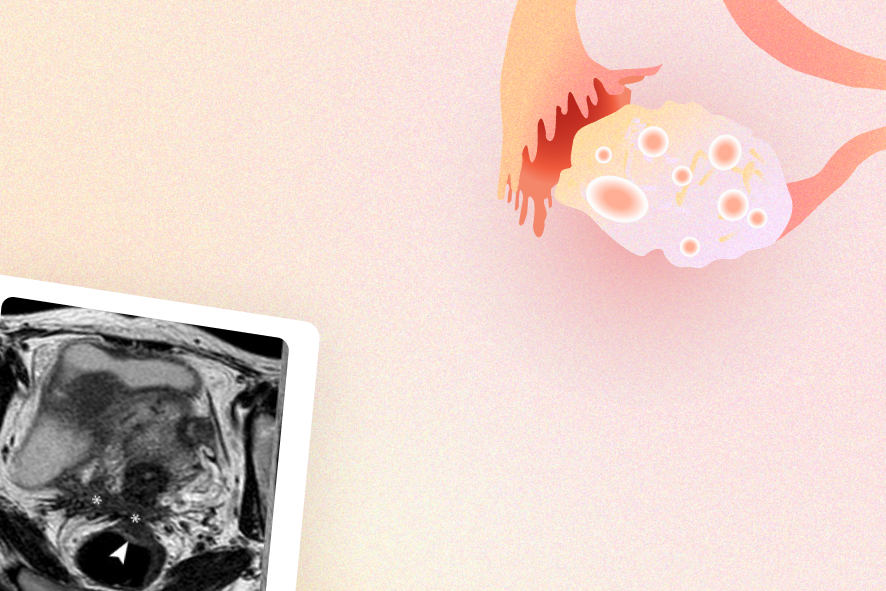In an eggshell...
- Fibroids are common, but only 1/3 of women with fibroids experience symptoms.2
- Heavy/painful periods, abdominal pain, and constipation are common symptoms.
- Fibroids only need treatment if they’re causing problems.
- Fibroids very rarely affect fertility.
More than 75% of women suffer from fibroids, but only 25% have symptoms.1 Many women may live happily, not knowing they have fibroids. But for others, they can cause unpleasant symptoms.
We’ll discuss more about what fibroids are, the issues they can cause, treatment options, and whether they impact fertility.
What Are Fibroids?
Fibroids are non-cancerous tumours that grow within the womb, and sometimes outside of it.1 Calling them “tumours” can sound scary, but they very rarely develop into cancer.
They’re common in women of reproductive age. Size wise, they range from tiny with no symptoms, to massive growths that change the shape of the womb. Fibroids are named depending on where they are found.
What Are Symptoms of Fibroids?
As we previously mentioned, fibroids often have no symptoms (especially if they’re small). Larger ones can give heavier and painful periods, abdominal pain, and a feeling of pressure.
Fibroids outside the womb, or growing close to other structures, can cause constipation and bladder issues.
Occasionally, they can become very painful when their blood supply is cut off.
If you’re worried about any of the above symptoms, please visit your doctor.
What Causes Fibroids?
We don’t the specific cause of fibroids, but genetic causes, hormonal changes, and changes to cells and their surroundings are all likely to be involved.
Certain risk factors make you more likely to develop fibroids, such as1:
- Black Ethnicity3
- Family History of Fibroids
- Obesity
- Starting Your Period Young
- Vitamin D Deficiency
Fibroid Treatment
Often, no treatment is needed if the fibroids aren’t causing symptoms or affecting your fertility.
If you’re struggling with symptoms, medication is usually tried first. Various types of contraceptives can help with symptoms, and stronger painkillers can help with pain and inflammation. Other hormonal medication can help shrink fibroid size.
For women with heavy bleeding, medication can be used to help with clotting and reduce blood loss.4
Where medication hasn’t worked, surgery to remove the fibroid can be considered. The type of surgery will depend on whether you hope to have children.
Fibroids And Fertility
Fibroids are the solo cause of fertility in 3% of cases5, but their role in infertility isn’t clear. Pregnancy and live birth rates may be lower in women with fibroids,6 but it depends on where the fibroids are found.
In short, more research is needed. If you’re worried about fibroids affecting your fertility, discuss the condition (and treatment options) with your doctor. Many women with fibroids conceive and give birth successfully.
Read more about fibroids and other conditions that can affect your fertility here.







.png)


